“Teaching Computational Social Science” webinar recording
In this Sage Methodspace webinar, Dr. Matti Nelimarkka (author of Computational Thinking and Social Science) and Dr. Friedolin Merhout discussed strategies for engaging with students and building the skills needed to design, plan, and conduct studies using computational social science methods. They offered examples from their own experience in course design and teaching – including how to work past problems students sometimes have when trying to learn these complex concepts.
The panelists pointed to the importance of meshing computational methods with other social sciences disciplines and approaches. See the discussion "Bridging Qualitative and Quantitative Methods" with Dr. Helen Kara, author of Qualitative Research for Quantitative Researchers, here.
Use the code MSPACEQ223 for a 20% discount if ordering books from Sage.
More Methodspace Posts about Computational Social Science
This blog is the seventh, and penultimate post, in a follow-on to our 2021 “The future of computational social science is Black” series, about a Summer Institute in Computational Social Science organized by Howard University and Mathematica. It continues to bring the power of computational social science to the issues of systemic racism and inequality in America. This marks the third iteration of the successful SICSS model being hosted by a Historically Black College or University.
This blog post is the sixth of eight in a follow-on to our 2021 “The future of computational social science is Black” series, about a Summer Institute in Computational Social Science organized by Howard University and Mathematica. It continues to bring the power of computational social science to the issues of systemic racism and inequality in America. This marks the third iteration of the successful SICSS model being hosted by a Historically Black College or University.
Latanya Sweeney, scholar of technology science, Daniel Paul Professor of the Practice of Government and Technology at the Harvard Kennedy School and in the Harvard Faculty of Arts and Sciences, and director and founder of the Public Interest Tech Lab, delivered the keynote address for SICSS-Howard/Mathematica 2023.
This blog post is the fifth of eight in a follow-on to our 2021 “The future of computational social science is Black” series, about a Summer Institute in Computational Social Science organized by Howard University and Mathematica. It continues to bring the power of computational social science to the issues of systemic racism and inequality in America. This marks the third iteration of the successful SICSS model being hosted by a Historically Black College or University.
This blog post is the fourth of eight in a follow-on to our 2021 “The future of computational social science is Black” series, about a Summer Institute in Computational Social Science organized by Howard University and Mathematica. It continues to bring the power of computational social science to the issues of systemic racism and inequality in America. This marks the third iteration of the successful SICSS model being hosted by a Historically Black College or University.
This blog post is the third of eight in a follow-on to our 2021 “The future of computational social science is Black” series, about a Summer Institute in Computational Social Science organized by Howard University and Mathematica. It continues to bring the power of computational social science to the issues of systemic racism and inequality in America. This marks the third iteration of the successful SICSS model being hosted by a Historically Black College or University.
This blog post is the second of eight in a follow-on to our 2021 “The future of computational social science is Black” series, about a Summer Institute in Computational Social Science organized by Howard University and Mathematica. It continues to bring the power of computational social science to the issues of systemic racism and inequality in America. This marks the third iteration of the successful SICSS model being hosted by a Historically Black College or University.
This blog post is the first of eight in a follow-on to our “The future of computational social science is Black” series, about a Summer Institute in Computational Social Science organized by Howard University and Mathematica. It continues to bring the power of computational social science to the issues of systemic racism and inequality in America. This marks the third iteration of the successful SICSS model being hosted by a Historically Black College or University.
Daniel Lobo shares four learnings from his unforgettable experience at SICSS-Howard/Mathematica 2022.
UDC Assistant Professor, Andrea Adams, talks about their experience during SICSS-Howard/Mathematica 2022.
Hear from the 2021 SICSS-Howard/Mathematica Excellence in Computational Social Science Research Fund awardees about how the funding helped their projects and their future plans.
At SICSS-Howard/Mathematic 2022 two group projects and five individual projects received the Inaugural Excellence in Computational Social Science Research Award.
At SICSS-H/M 2022, Anthony Wutoh, Yahya Shaikh and Carter Clinton discussed how to bridge the diversity gap in biomedical research and the need for interdisciplinary collaboration.
Rashun Miles discusses his experience returning to SICSS-Howard/Mathematica as an alumni and the larger need for restorative spaces for Black students in every university.
LaVerne H. Council spoke at the Closing Plenary of SICSS/Howard-Mathematica 2022, emphasizing the importance of seeking wisdom and truth through data and fair & effective policymaking.
Paula Moreno, founder of Manos Visibles & first Afro-Colombian woman to serve as Minister of Culture of Colombia, delivered the first SICSS-Howard/Mathematica Motivational Address, focused on the technological challenges and solutions for Africans and people of African descent around the world.
Speakers at SICSS-Howard/Mathematica 2022 explore how change does not affect populations equally, and how the exclusion of underrepresented communities can perpetuate social injustice.
Bite-Sized Lunchtime Talks (BSLT) are a SICSS-Howard/Mathematica site-specific innovation that introduces participants to organizations doing cool things with data. 2022 offered a variety of organizations that proved interesting and inspiring to our participants.
Dr. Safiya Noble speaks about her journey as a critical race scholar, her research on the racist and sexist dynamics of search engines, and the importance of community.
At SICSS-Howard/Mathematica 2022, Shawndra B. Hill, Karen Levy, Brandeis Marshall, and Kyla McMullen emphasized themes of technological determinism, bias, and privacy, and discussed connections to inclusion, equity, and diversity.
The opening plenary of SICSS-Howard/Mathematica 2022 featured a fireside chat with Dr. Anthony K. Wutoh, the Provost of Howard University, and Dr. Amy Yeboah Quarkume, an Associate Professor of Africana Studies, to kick off the event.
The first Summer Institute in Computational Social Science held at a Historically Black College or University, returns to Howard University for its two-day pre-institute, Praxis to Power for graduate students, postdoctoral researchers, and beginning faculty who needed more time to practice computational methods.
In this Methodspace interview Dr. Joel Thurston and Dr. Cesar Montalvo tell us about how data science can be used for social good, and how their program for young scholars is cultivating a next generation of data scientists.
In this Sage Methodspace webinar Dr. Matti Nelimarkka and Dr. Friedolin Merhout discuss strategies for engaging with students and building the skills needed to design, plan, and conduct studies using computational social science methods
Learn how computational social sciences help scholars to renew their research in several directions.
This collection of open-access articles offers multiple perspectives on the use of Big Data and ethical protocols for computational research methods.
Summer Institute in Computational Social Science site sponsored by Howard University and Mathematica (SICSS-Howard/Mathematica) awards individuals and teams for the inaugural Excellence in Computational Social Science Research Fund as a unique and exclusive benefit offered to alumni of the site.
A SICSS-Howard Mathematica 2021 participant shares how he reconnected with others in a meaningful way and grew personally during his virtual SICSS experience.
Paul Decker PhD, president and chief executive officer of Mathematica and nationally recognized expert on policy research, delivered the closing plenary address on Friday, June 25th at SICSS-Howard/Mathematica 2021.
The first Summer Institute in Computational Social Science hosted at a Historically Black College or University featured a panel of guest speakers who inspired participants with their research and professional trajectory. Lecture topics include re-entry into the job force for incarcerated people, financial statuses of small businesses in relation to the COVID-19 pandemic, social identities and systems of power, and discriminatory bias within technology.


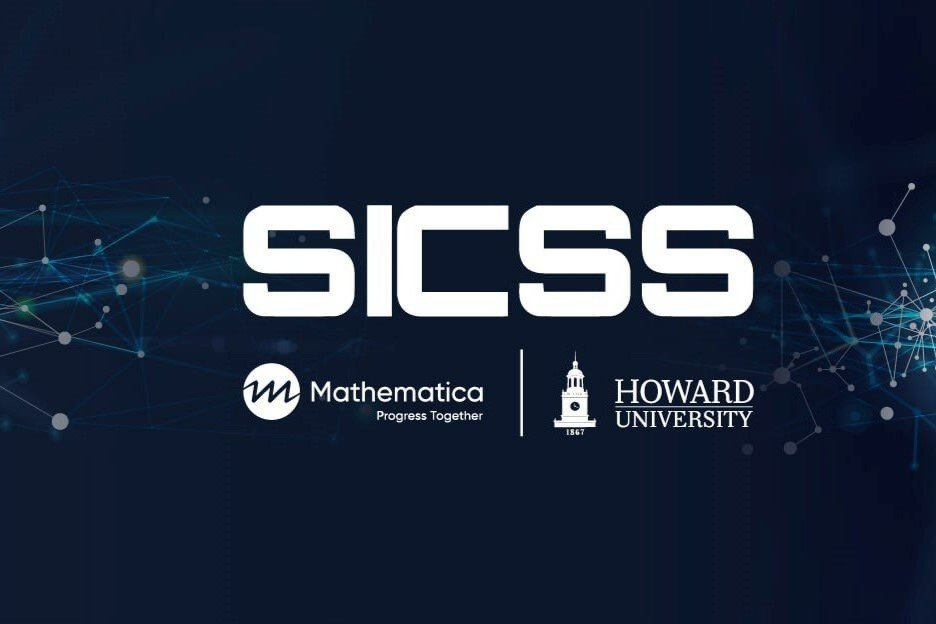












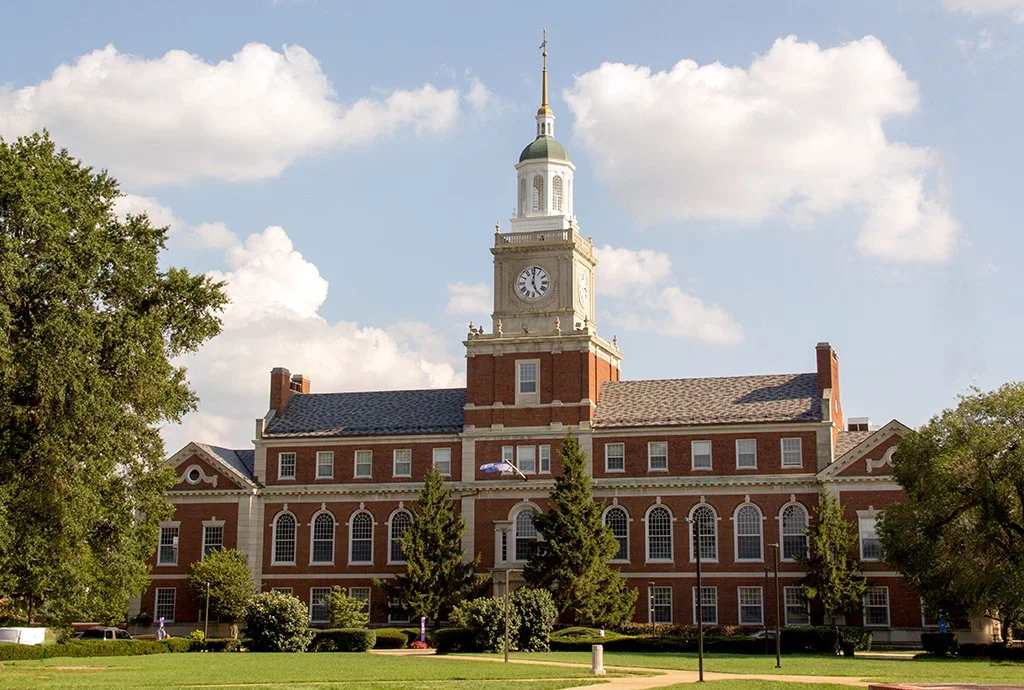
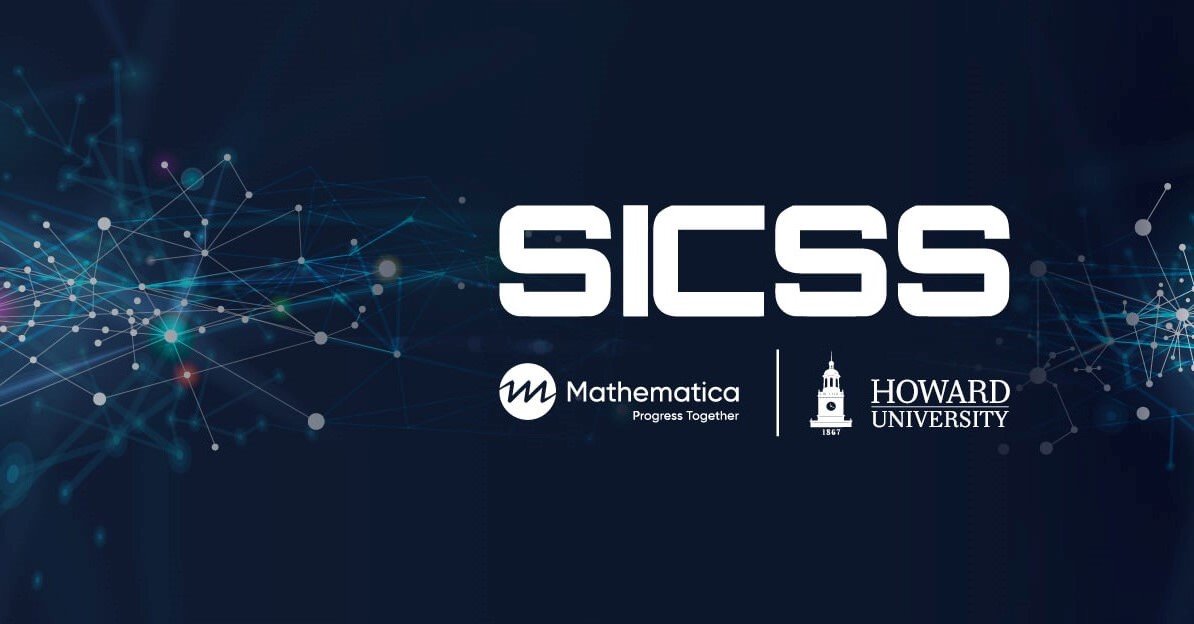
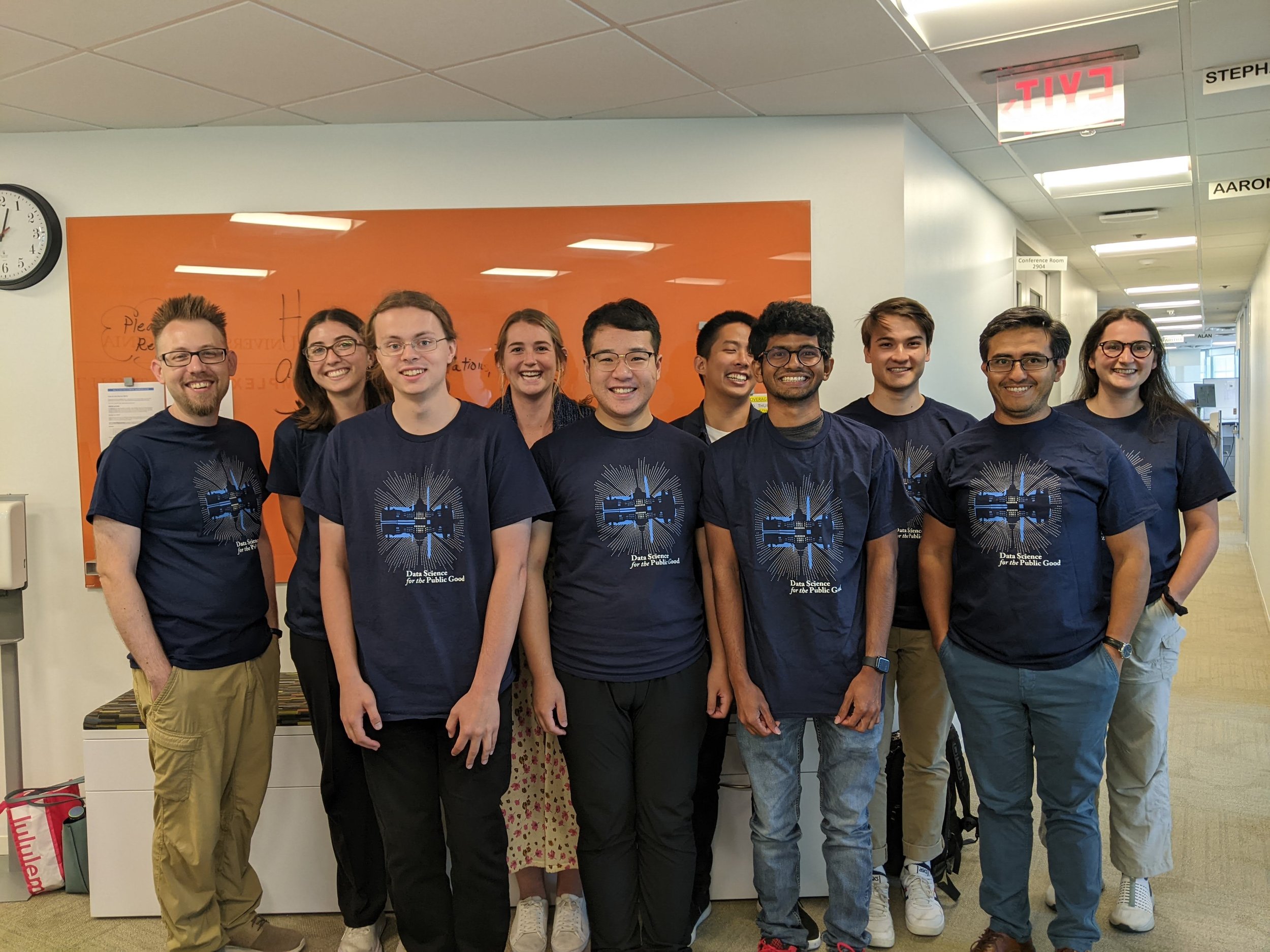




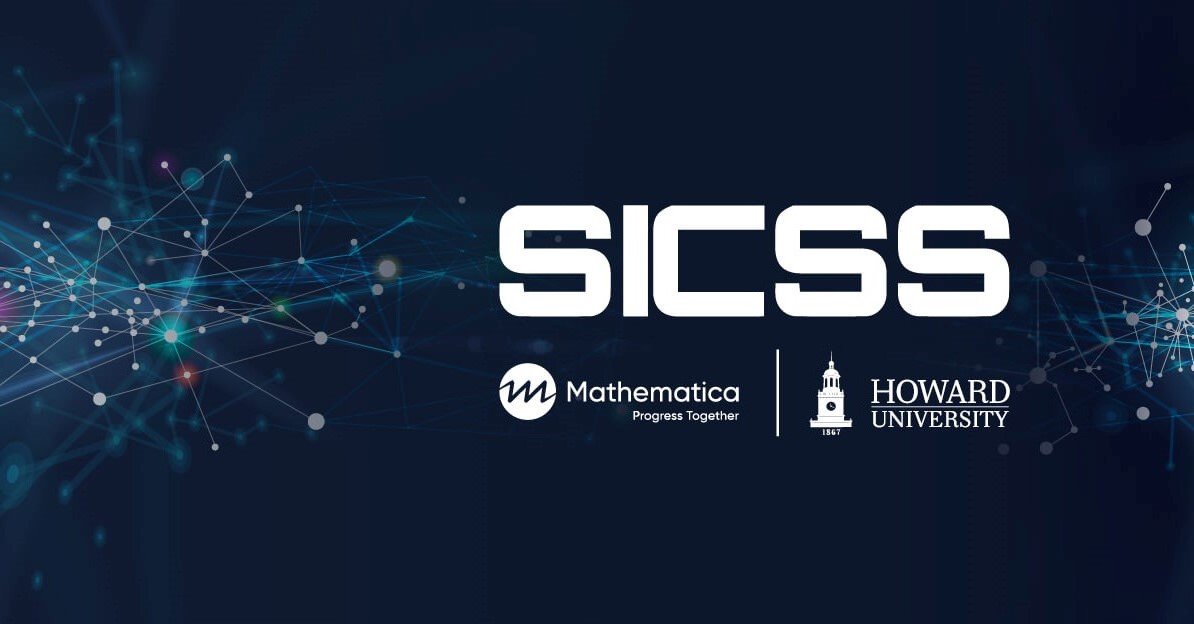
This blog post is the eighth, and final, post in a follow-on to our 2021 “The future of computational social science is Black” series, about a Summer Institute in Computational Social Science organized by Howard University and Mathematica. It continues to bring the power of computational social science to the issues of systemic racism and inequality in America. This marks the third iteration of the successful SICSS model being hosted by a Historically Black College or University.